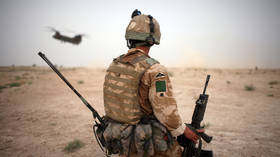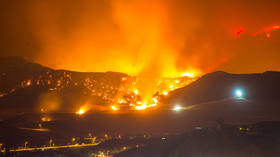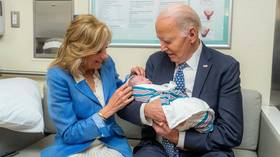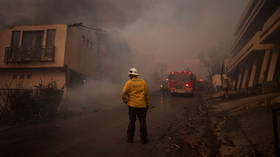‘US intergovernmental conflict: Military vs diplomacy’
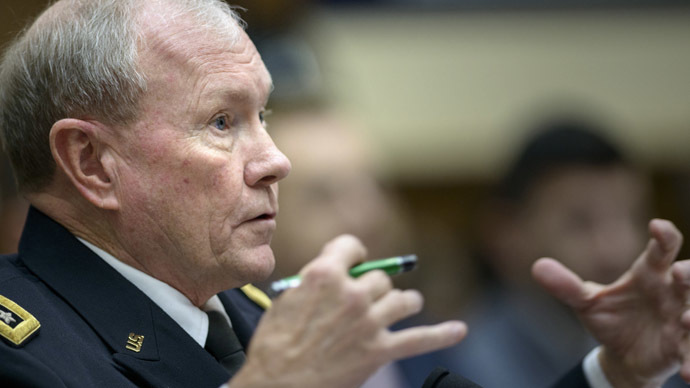
The contradictory statements coming from US President Obama, John Kerry, and top military officials show that the US government is in bad shape and there is no cabinet solidarity, Patrick James, Director of USC's Center for International Studies, told RT.
The split within the US government seems to becoming more and more evident with leading US politicians often contradicting each other in the recent weeks. In September, at the UN General Assembly President Barack Obama named Ebola, “Russian aggression in Europe,” and ISIS as the top three global threats, State of Secretary John Kerry told Russia’s Foreign Minister to “pay no mind” to the speech.
However, just a day ago, on November 19, US General Martin Dempsey spoke about America’s military and defense policy and again mentioned ISIS and Russia as a principle threat to the US.
Patrick James, Director of USC's Center for International Studies, told RT that such contradictory statements are just a part of the old game or conflict within the US government.
“It’s a very old game that we are seeing right here, there are always competitions going on among the branches of the government, and Dempsey of course is at the pinnacle of the military side, whereas Kerry is at the top of the diplomatic side, and you will not be surprised to hear that this is all kind of a conflict going on over and over again,” James said.
“The conflict between the military branch of the government and the diplomatic corps is very much in the open and there is nothing to do as each would tend to favor its own tools more in the game of bureaucratic politics,” he added.
Another expert, Richard Becker from the ANSWER Coalition, was not surprised by all the twists and turns as well. He told RT that “General Dempsey has no problems when President Obama says ‘no boots on the ground,’ saying the next day ‘well, we may be need to send combat troops into Iraq’.”
Richard Becker suggests that the only explanation for Dempsey’s words about Russia is that he has “a clear view of the US as a worldwide empire,” and he is quite openly demanding more money for the military as “it is the military that is defending the interest of empire.”
“Russia is not threatening the US, and in fact the Islamic State is not threatening the US. But they are threatening US influence, control and domination in certain key parts of the world where the US leaders want to dominate,” he added.
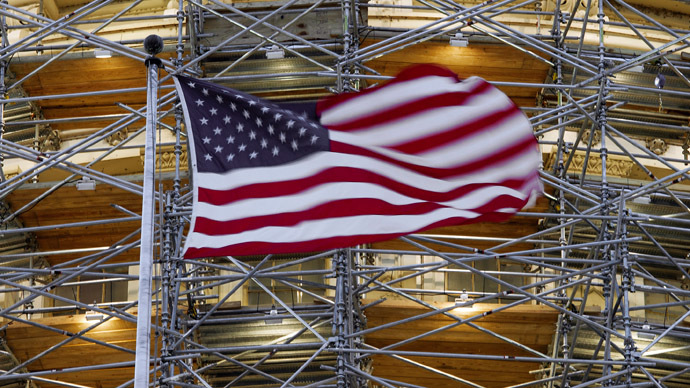
Another significant statement from the American side also came on November 19 when the new US ambassador to Russia John F. Tefft took office. He said he is “committed to maintain open and frank lines of communication between Russia and the US, helping to express the Russian perspective to Washington and express the US government’s views to Moscow.” Those words themselves sound rather positive and promise a cheerful future for the US-Russian relations. However, both Patrick James and Richard Becker claim that there is little faith in that statement as Obama’s position at home and his credibility are under question.
“The used words are very typical if you go back and look at what ambassadors tend to say when they come on board, it’s not going to be that much different to previously. His position is very difficult for the simple reason the government is very badly divided at this point on what to do in terms of the post-Ukraine policy,” Patrick James told RT.
“I think the US policy is largely reactive. At this point the President is not in the position of having a lot of political capital to act. In my view, the Ambassador is waiting to hear what will come back from Russian officials after the statement, and they are all crossing their fingers in Washington DC that it is little as possible to be happening in Eastern Europe because they are not in a very good position to act,” he added.
Richard Becker emphasized that John F. Tefft’s statement was just an example of the diplomatic language which is very neutral sounding, while the real attitude of the US and its allies towards Russia was seen at the G20 summit.
“We hear that diplomatic language, but then we hear another language and we see the actions that the US and NATO partners take – they are putting on sanctions and the military build-up,” Becker told RT.
The statements, views and opinions expressed in this column are solely those of the author and do not necessarily represent those of RT.
The statements, views and opinions expressed in this column are solely those of the author and do not necessarily represent those of RT.



